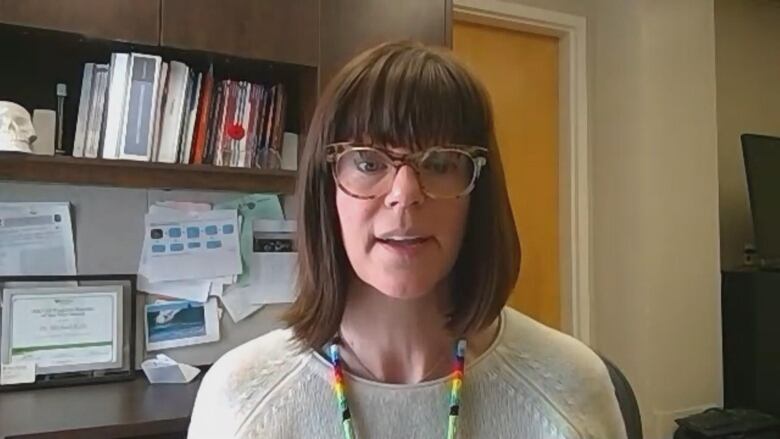Saskatoon ICUs maxed out because of COVID-19, patients diverted to smaller centres
Doctor begs public to comply with COVID safety measures

The intensive care units of Saskatoon hospitals are so full that officials have stopped accepting most out-of-town patients.
The ICU is always populated by people recovering from car crashes, infections, heart attacks or a host of other maladies, but the deteriorating COVID-19 situation has forced this unprecedented decision, doctors say.
Physicians have been getting emails from Saskatchewan Health Authority officials this month saying Saskatoon ICUs are overloaded to levels as high as 133 per cent of capacity. Friday, an email pegged the number at 126 per cent.
Saskatoon's 23 ICU beds are now mostly reserved for Saskatoon patients only.
This "bypass" status has been in place since Monday. It was also ordered between Nov. 2 and 5, SHA Chief Medical Officer Dr. Susan Shaw said in an interview.

Patients with major trauma, strokes and other emergencies will still be admitted to Saskatoon ICUs, but those with severe pneumonia, drug overdoses and other afflictions will be diverted to other cities, Shaw said.
So far, four patients have been sent from Saskatoon to available ICU beds in other cities. Prince Albert, North Battleford, Lloydminster, Swift Current, Moose Jaw, Yorkton and Regina have a combined total of 67 ICU beds.
With new COVID-19 cases rising — and bringing with them hospital and ICU admissions — some doctors say the situation could continue indefinitely. It could also cause other cities with fewer beds to be placed on "bypass."
Shaw said Saskatchewan's excellent transportation network of air and road ambulances, and its strong provincial co-ordination, have helped get patients where they need to be with minimal disruption. She said she's not aware of any negative health consequence for the four that have been diverted so far.
But Shaw, who also works in Saskatoon's intensive care units, said this problem won't be solved by doctors or nurses or administrators. She begged Saskatchewan residents to take precautions to keep COVID-19 numbers down.
"We are having to do this because of COVID. The public can do so much to help keep the system stable. We will be there for them, but we need them to be there for us," Shaw said.
Shaw said the bypass system was developed in the spring by provincial health planners. An algorithm is used more than once a day to assess available beds, staffing levels and a host of other factors. If a unit exceeds 100 per cent capacity for a sustained period, it will be placed on bypass.
An official said more ICU beds, ventilators and staff can be added if there are no other options.